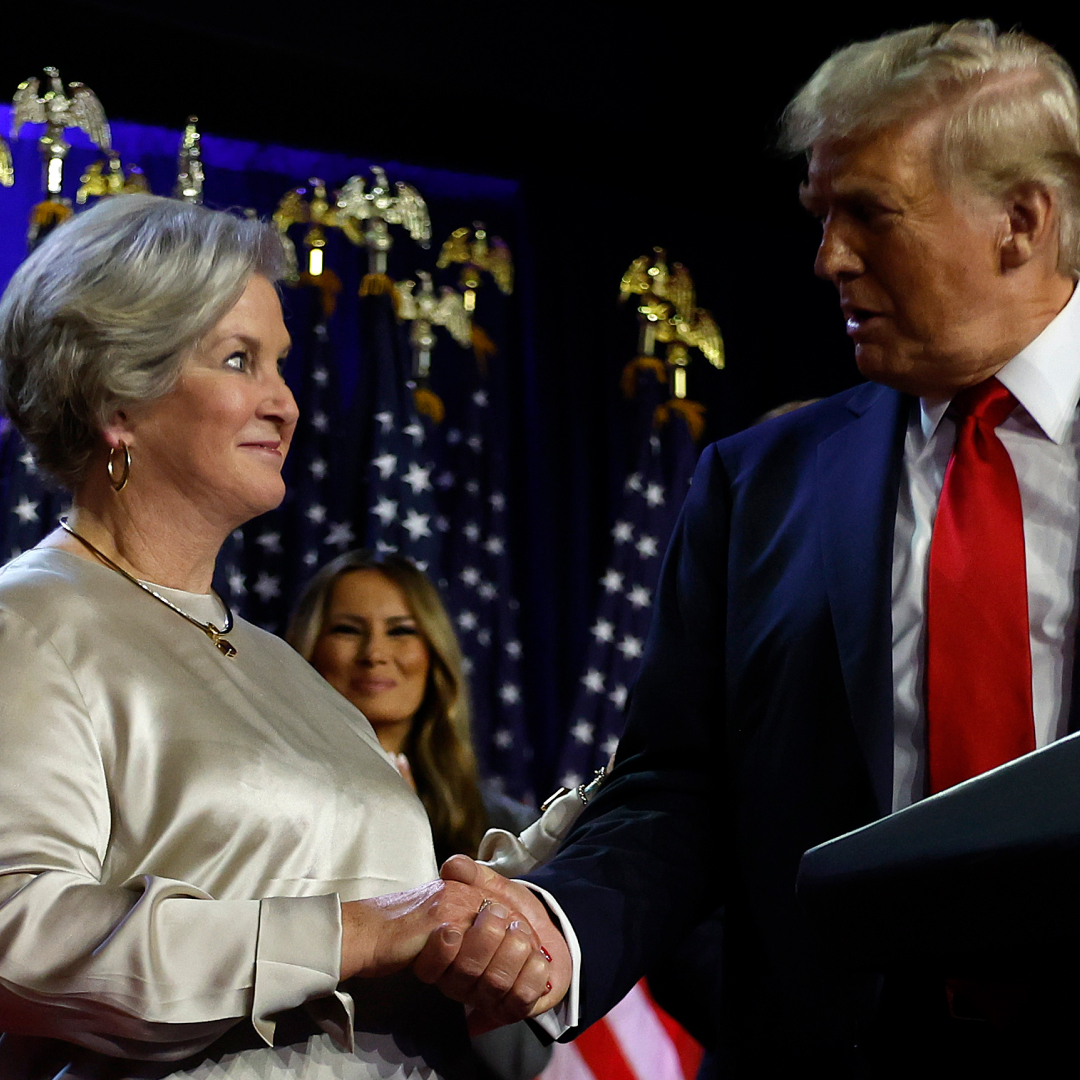Could Donald Trump Be Impeached After Joe Biden Takes Office?
There's virtually no precedent for the matter.


After a violent pro-Donald Trump mob attempted to stage a coup as Congress convened to certify the election of Joe Biden as the next president on Jan. 6, and in the days since, many Americans have called for the removal of Trump from office. With a little over a week left of his term, there are several ways this could happen: via resignation, the 25th Amendment, or an impeachment trial.
It's unlikely that Trump would follow in Richard Nixon's footsteps in doing the first unless, as some have noted, he's able to force Mike Pence, as interim president, to pardon him immediately after (which, incidentally, is also how Nixon avoided punishment for his role in the Watergate scandal, courtesy of Gerald Ford). The 25th Amendment, which allows for the removal of the president by the vice president and a majority of the cabinet, is also unlikely to be enacted, despite a formal Congressional request for Pence to do so and despite what is reportedly a growing rift between Pence and Trump. Therefore, impeachment—Trump's second, ICYMI—seems to be the nation's best hope to hold the president accountable for his actions in inciting the Jan. 6 insurrection and attempting to overthrow a free and fair election.
Before we get into what impeachment would look like with only a few days left in the Trump administration, a quick refresher on the presidential impeachment process: First, the House of Representatives brings one or more articles of impeachment to a vote. If a simple majority supports the articles, the president is impeached (as Trump was in December 2019). The articles are then sent to the Senate, which stages a trial presided over by the chief justice of the Supreme Court; in the ensuing vote after the trial, a two-thirds supermajority of senators is required to approve conviction, which automatically removes the president from office (after his first impeachment trial, Trump was acquitted by the Senate in February 2020). Once convicted, the Senate would just need a simple majority on another vote to bar the president from ever holding any public office again.
Here, then, is what happens if the impeachment trial is held after Trump has already been removed from office—and if that's even constitutionally plausible.
What's the timeline for Trump's potential second impeachment?
House members began drafting articles of impeachment on the day of the insurrection—and in the case of Rep. Ilhan Omar, during the insurrection—and officially unveiled a single article on Jan. 11. The resolution charges Trump with "inciting violence against the government of the United States." It points to the president's repeated attempts to sow mistrust in the election process, his remarks at a rally near the Capitol on the day of the riots, and the phone call in which he threatened Georgia's secretary of state if he didn't "find" enough votes to overturn the state's election results.
The House also introduced a resolution calling on Pence to invoke the 25th Amendment. That resolution will come to a vote on Tuesday, Jan. 12, and give Pence 24 hours to take action to remove Trump from office; if he doesn't do so, the House is expected to convene the next day to vote on the article of impeachment, which is all but guaranteed to pass easily due to the House's Democratic majority and overwhelming support for Trump's removal.
From there, it's up to Speaker of the House Nancy Pelosi when to send the article of impeachment to the Senate for a trial. Congress members have suggested that Pelosi may wait to do so, so that the trial will not interfere with Joe Biden's plans to begin implementing his agenda from the moment he's sworn into office on Jan. 20. Waiting to send the article to trial until after Biden's first 100 days has another added benefit: By then, the Democrats will hold a razor-thin majority in the Senate, potentially giving them an easier route to conviction.
Stay In The Know
Get exclusive access to fashion and beauty trends, hot-off-the-press celebrity news, and more.
That said, this would be the first time in U.S. history that a presidential impeachment trial is held after the president has already left office. The only other presidential impeachments—of Andrew Johnson, Bill Clinton, and Trump, his first time around—were all carried out while each president was still in office, and concluded with acquittal in the Senate.
Is there any other precedent for a post-inauguration impeachment?
Though not totally uncommon in world history, this has only happened once before in the U.S.: As NBC News notes, back in 1876, then-Secretary of War William Belknap issued his resignation to President Ulysses S. Grant mere minutes before the House was scheduled to vote on his impeachment over allegations of corruption. Despite his last-minute resignation, the House moved forward with the vote, then passed the successful resolution to the Senate, which held the impeachment trial and ended up acquitting Belknap.
What does the Constitution say?
While impeachment is mentioned several times in the Constitution, there are no stipulations about the timing of the process. The document only denotes that the president, vice president, and all "civil officers" of the U.S. are subject to impeachment for treason, bribery, and other "high crimes and misdemeanors"; that the House of Representatives will have sole power of impeachment; that the Senate will have sole power to try all impeachments; and that impeachment can only result in removal from office and prohibition from holding future office.
It makes sense that the Framers would have been intentionally vague about timing, in order to prevent any public officials who commit treason or other impeachable crimes in their final days in office from getting off scot-free.
What are the experts saying?
Between the Constitution's lack of specifications about the timing of impeachment proceedings and Belknap's belated impeachment, many legal scholars have determined that Trump could, indeed, be tried in the Senate well after he has left office.
"Once an impeachment begins in the House, it may continue to a Senate trial. I don't see any constitutional problem with the Senate acting fast or slowly," Michael Gerhardt, a law professor at the University North Carolina at Chapel Hill, told NBC News.
"The constitutional case for late impeachment has more strengths and fewer flaws than the case against it," according to a widely cited 2001 law review article by Michigan State University law professor Brian C. Kalt. Kalt based his argument on individual states' constitutions, the writings of the Framers, previous examples of "late impeachment" in England, and the fact that the Constitution stipulates that impeachment can result not only in removal from office, but also in a ban on holding public office in the future—implying that impeachment isn't only an immediate punishment for those currently in office.
And finally, President John Quincy Adams also once weighed in on the topic, sharing his belief that any public official could be impeached for any crimes they commit while in office, no matter how many years later they're uncovered. "I hold myself, so long as I have the breath of life in my body, amenable to impeachment by this House for everything I did during the time I held any public office," he said in 1846.
Andrea Park is a Chicago-based writer and reporter with a near-encyclopedic knowledge of the extended Kardashian-Jenner kingdom, early 2000s rom-coms and celebrity book club selections. She graduated from the Columbia School of Journalism in 2017 and has also written for W, Brides, Glamour, Women's Health, People and more.
-
 In 'Sinners,' Music From the Past Liberates Us From the Present
In 'Sinners,' Music From the Past Liberates Us From the PresentIn its musical moments, Ryan Coogler's vampire blockbuster makes a powerful statement about Black culture, ancestry, and art.
By Quinci LeGardye
-
 Kendall Jenner Has the Last Word on the Best Travel Shoes
Kendall Jenner Has the Last Word on the Best Travel ShoesLeave your ballet flats in your checked bag.
By Halie LeSavage
-
 Prince Harry Gave Nephew Prince Louis an Extremely Rare Five-Figure Gift for His Christening
Prince Harry Gave Nephew Prince Louis an Extremely Rare Five-Figure Gift for His ChristeningUncle Harry for the gifting win.
By Kristin Contino
-
 Who is Susie Wiles? President-Elect Donald Trump Names His White House Chief of Staff
Who is Susie Wiles? President-Elect Donald Trump Names His White House Chief of StaffThe political consultant helped the former president run his successful 2024 campaign.
By Danielle Campoamor
-
 A Nationwide Reaction to the 2024 Election
A Nationwide Reaction to the 2024 ElectionHow are people feeling in this moment? Marie Claire spoke to folks across the country to find out what they were thinking as they cast their votes and waited to hear the results.
By The Editors
-
 The Historic Election Victories Worth Celebrating
The Historic Election Victories Worth CelebratingIncluding momentous firsts, abortion protections, and New York's "Equal Rights Amendment."
By Iris Goldsztajn
-
 Kamala Harris Has Lost the 2024 Presidential Election
Kamala Harris Has Lost the 2024 Presidential ElectionIt's official.
By Jenny Hollander
-
 Donald Trump Is Ordered to Pay E. Jean Carroll $83.3 Million in Damages
Donald Trump Is Ordered to Pay E. Jean Carroll $83.3 Million in DamagesCarroll had filed two defamation suits against the former president.
By Gabrielle Ulubay
-
 E. Jean Carroll Triumphs Over Donald Trump In Civil Suit
E. Jean Carroll Triumphs Over Donald Trump In Civil SuitA jury found him liable for sexual abuse and defamation.
By Gabrielle Ulubay
-
 What's the Holdup in Biden's Push for Paid Leave?
What's the Holdup in Biden's Push for Paid Leave?The president is proposing $325 billion to fund paid family leave—the strongest budget proposal in history—and pushing for free universal pre-K nationwide. But he faces opposition.
By Dawn Huckelbridge
-
 36 Ways Women Still Aren't Equal to Men
36 Ways Women Still Aren't Equal to MenFeatures It's just one of the many ways women still aren't equal to men.
By Brooke Knappenberger